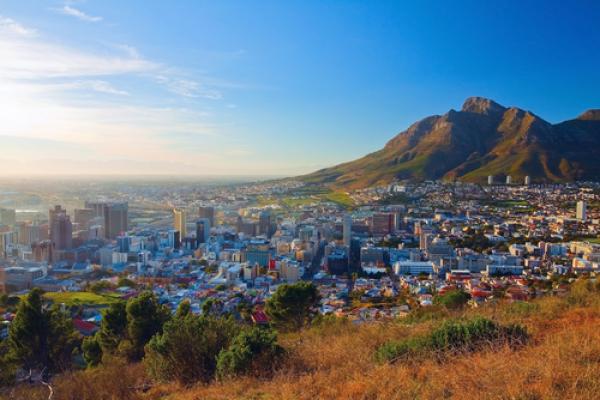In a township called Khayelitsha, a woman wakes well before dawn to catch a bus that will carry her to the beautiful home in Cape Town where her employer/boss/master wants his tea in bed by 7 a.m. That is what “post-apartheid” South Africa still looks like today.
I just returned from a remarkable month in South Africa—the country that changed my life. I’ve often said that I learned my theology of hope from South Africa, during the anti-apartheid struggle I was thrust into as a young man. South African church leaders invited me in years ago. I got to see and experience the costly movement for freedom in the 1980s, witness the miracle of the inauguration of Nelson Mandela’s rainbow nation in 1994, and later join a wonderful reunion of South African activists, many of whom had been in exile or in prison, along with some of us international allies. So when I set out on a South African speaking and book tour 20 years after the new democracy, I didn’t know what to expect.
This time, I brought my family so they could see the country that had meant so much to me. What I discovered was a new generation of South African leaders ready to define their own vocation and mission as they help build a new nation. I quickly came to understand that making a deep connection with them was the real reason that I had come back. It’s tough to be in the shadow of a heroic generation of leaders like Desmond Tutu whose agenda has been the political liberation of South Africa—accomplished to the amazement of the world. On this trip, 20 years later, I saw the incredible freedom of movement now for all the former racial categories—but also how the systemic geography of apartheid was still painfully evident.
Economic inequality in South Africa is now greater than it was even during the days of apartheid, and gender violence is rampant. So these are the new agendas of a new generation: economic liberation and gender equality, with a commitment to lead on both in the churches. The rainbow of young people who turned up in such great numbers at all of our events truly want a new South Africa— a society yet to emerge.
Read the Full Article

